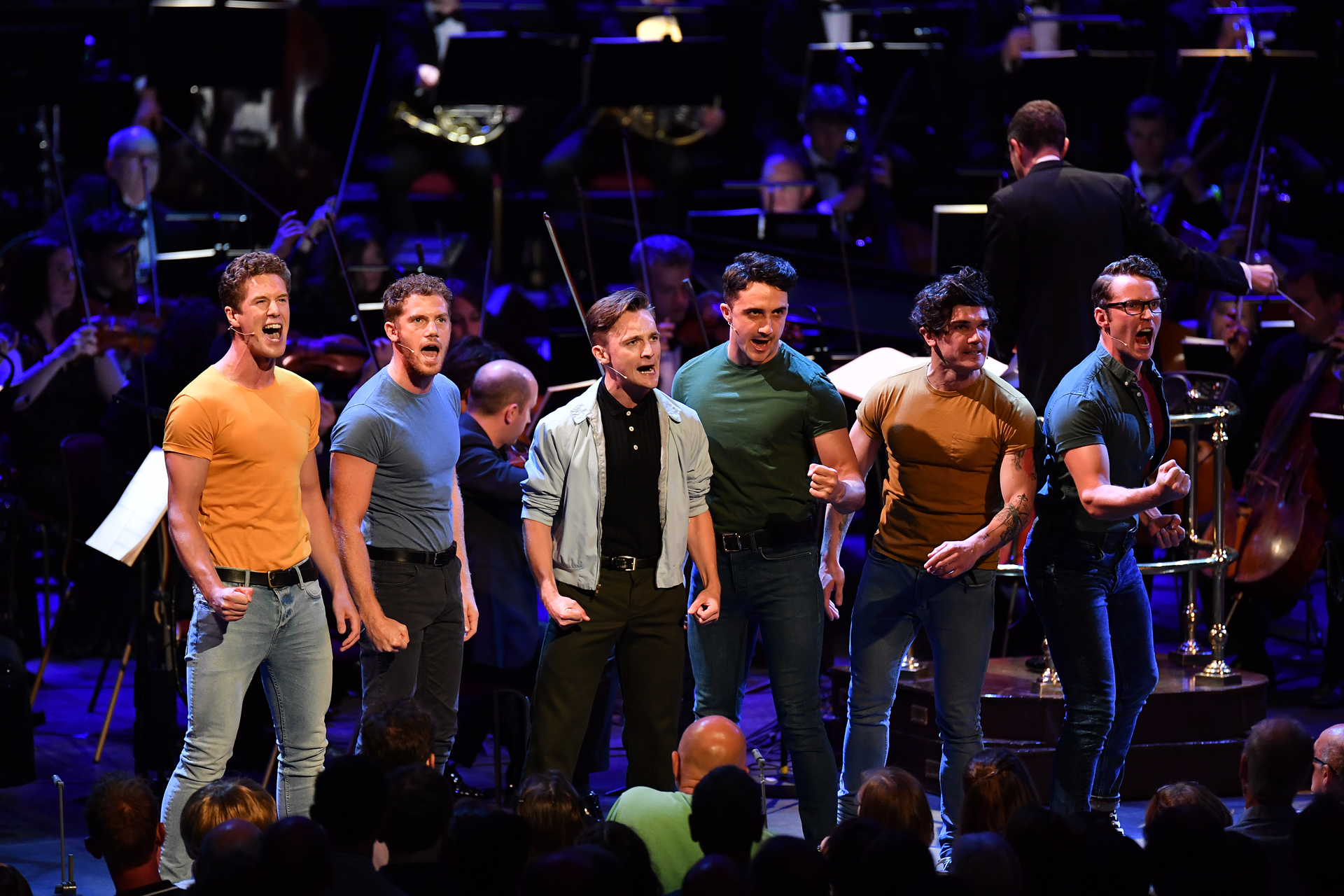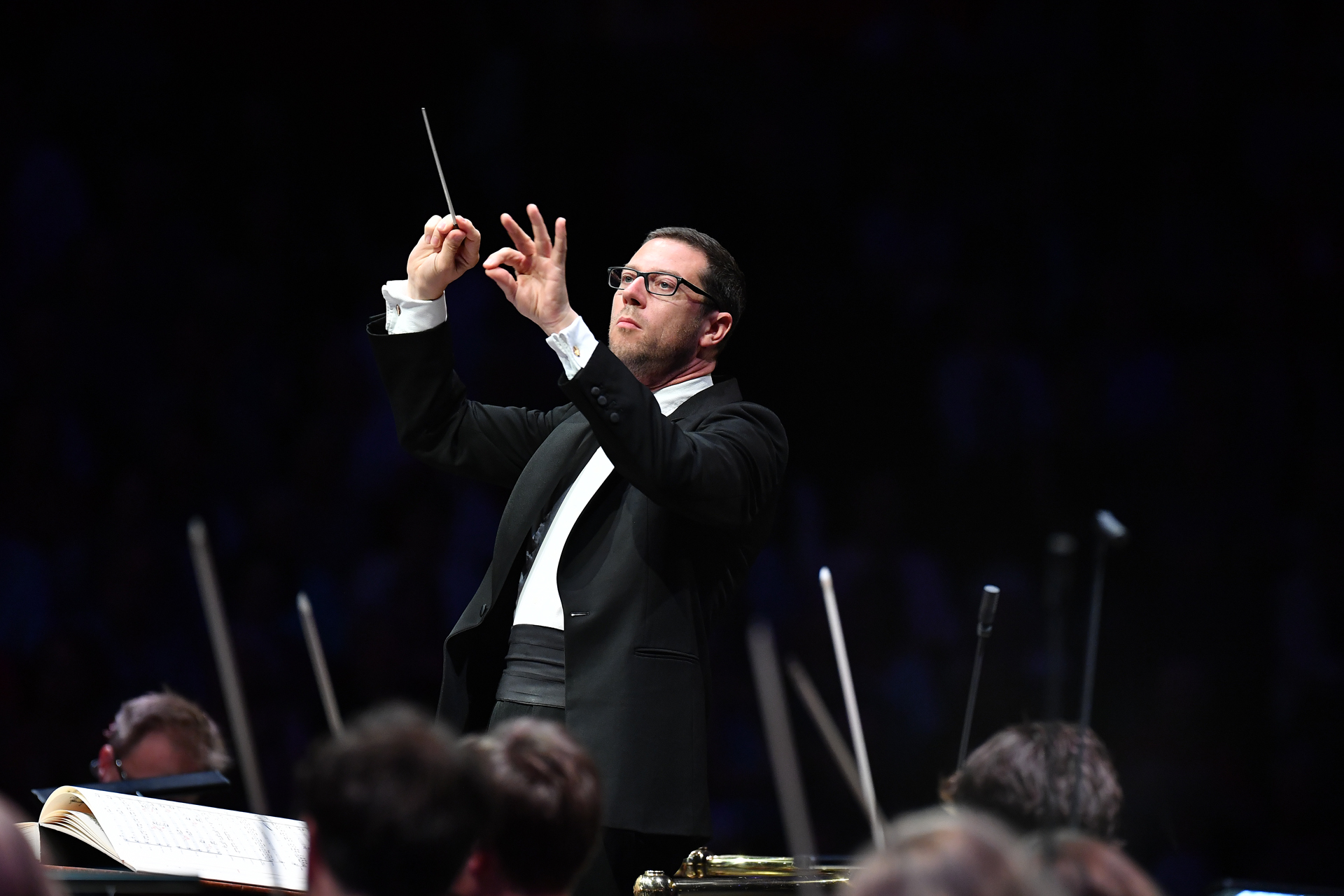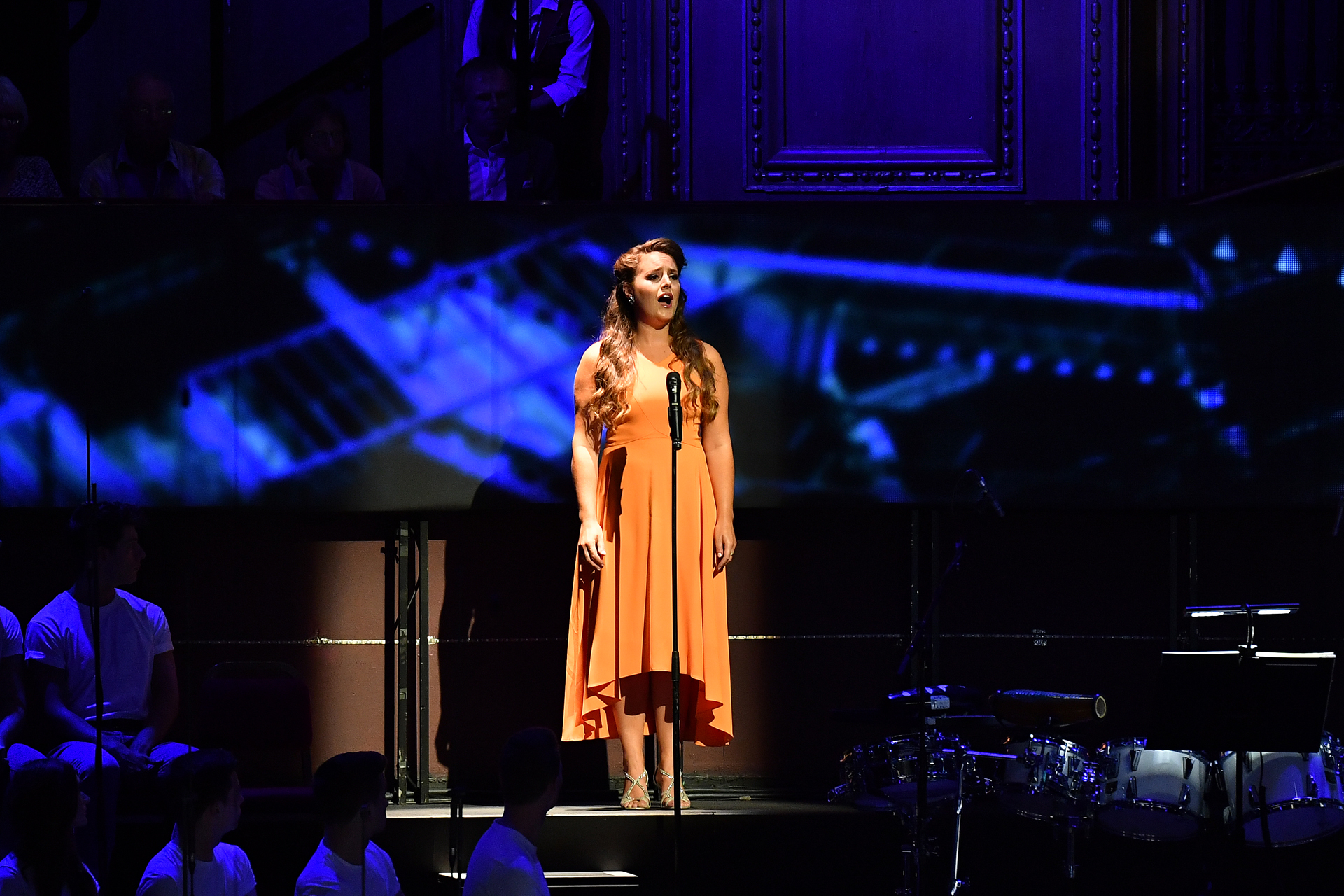Prom 39, West Side Story, Wilson review - best heard on the radio | reviews, news & interviews
Prom 39, West Side Story, Wilson review - best heard on the radio
Prom 39, West Side Story, Wilson review - best heard on the radio
This concert version must be experienced on its own terms
In West Side Story, those great, familiar songs just keep on coming. Already by the end of the first half an hour, there have been “The Jet Song”, “Something’s Coming”, “Maria”, “Tonight” and “America”, and there is no shortage of them still to come.
Saturday’s “concert version” of the show, in celebration of the Bernstein centenary was always going to be one of the big events of the Proms season. The John Wilson Orchestra have increasingly become a welcome fixture at the Proms since their debut in 2009, and a mainstay of the Saturday night programming. The decision to put on an extra show on Saturday afternoon for this their 10th season was hardly controversial. But you can never please all of the people all of the time, and some grumpy sentiments were finding repeated expression on Twitter about the fact that the show wasn’t being televised, as has become the norm with the John Wilson shows in recent years. There were presumably good reasons why that couldn’t be done.
This was a performance focusing above all on the music, in which the strengths of this hand-picked orchestra and its charismatic conductor shone brightly throughout. John Wilson gave the sense that the score had been worked on, loved, and its strengths, its variety and its myriad influences were to be constantly brought to life. 
There is so much power, there are so many riches in this score. It can only be a matter of conjecture what compositional paths Bernstein might have taken if he had not been appointed Music Director of the New York Philharmonic just a few weeks after the opening of West Side Story. And there is also so much to marvel at in the art of the lyricist in the contribution of Stephen Sondheim, twelve years Bernstein’s junior. 
That said there were extremely touching and dramatic moments, Wilson’s timing and pacing of the score was masterful, the gangs of Jets and Sharks delivered menace as they confronted each other. But in the hall, from where I was sitting, just behind the sound desk, the lack of audibility of Sondheim’s words in the hall, - with the admirable exception of Ross Lekites- was a real problem. The experience on the radio is very different and the words from all the principals are crystal-clear. And the drama? From my seat, one of the big moments was completely invisible: after Tony has been shot and fallen to the ground, all I could see was rows of audience heads blocking the view. 
The very best experience of this show is definitely to be had via the radio broadcast; it is stunningly good. There are seven more Proms this season featuring works by Bernstein.
The future of Arts Journalism
You can stop theartsdesk.com closing!
We urgently need financing to survive. Our fundraising drive has thus far raised £49,000 but we need to reach £100,000 or we will be forced to close. Please contribute here: https://gofund.me/c3f6033d
And if you can forward this information to anyone who might assist, we’d be grateful.

Subscribe to theartsdesk.com
Thank you for continuing to read our work on theartsdesk.com. For unlimited access to every article in its entirety, including our archive of more than 15,000 pieces, we're asking for £5 per month or £40 per year. We feel it's a very good deal, and hope you do too.
To take a subscription now simply click here.
And if you're looking for that extra gift for a friend or family member, why not treat them to a theartsdesk.com gift subscription?
more Classical music
 BBC Proms: Le Concert Spirituel, Niquet review - super-sized polyphonic rarities
Monumental works don't quite make for monumental sounds in the Royal Albert Hall
BBC Proms: Le Concert Spirituel, Niquet review - super-sized polyphonic rarities
Monumental works don't quite make for monumental sounds in the Royal Albert Hall
 Frang, Romaniw, Liverman, LSO, Pappano, Edinburgh International Festival 2025 review - sunlight, salt spray, Sea Symphony
Full force of the midday sea in the Usher Hall, thanks to the best captain at the helm
Frang, Romaniw, Liverman, LSO, Pappano, Edinburgh International Festival 2025 review - sunlight, salt spray, Sea Symphony
Full force of the midday sea in the Usher Hall, thanks to the best captain at the helm
 Elschenbroich, Grynyuk / Fibonacci Quartet, Edinburgh International Festival 2025 review - mahogany Brahms and explosive Janáček
String partnerships demonstrate brilliant listening as well as first rate playing
Elschenbroich, Grynyuk / Fibonacci Quartet, Edinburgh International Festival 2025 review - mahogany Brahms and explosive Janáček
String partnerships demonstrate brilliant listening as well as first rate playing
 BBC Proms: Akhmetshina, LPO, Gardner review - liquid luxuries
First-class service on an ocean-going programme
BBC Proms: Akhmetshina, LPO, Gardner review - liquid luxuries
First-class service on an ocean-going programme
 Budapest Festival Orchestra, Iván Fischer, Edinburgh International Festival 2025 review - mania and menuets
The Hungarians bring dance music to Edinburgh, but Fischer’s pastiche falls flat
Budapest Festival Orchestra, Iván Fischer, Edinburgh International Festival 2025 review - mania and menuets
The Hungarians bring dance music to Edinburgh, but Fischer’s pastiche falls flat
 Classical CDs: Hamlet, harps and haiku
Epic romantic symphonies, unaccompanied choral music and a bold string quartet's response to rising sea levels
Classical CDs: Hamlet, harps and haiku
Epic romantic symphonies, unaccompanied choral music and a bold string quartet's response to rising sea levels
 Kolesnikov, Tsoy / Liu, NCPA Orchestra, Chung, Edinburgh International Festival 2025 review - transfigured playing and heavenly desire
Three star pianists work wonders, and an orchestra dazzles, at least on the surface
Kolesnikov, Tsoy / Liu, NCPA Orchestra, Chung, Edinburgh International Festival 2025 review - transfigured playing and heavenly desire
Three star pianists work wonders, and an orchestra dazzles, at least on the surface
 BBC Proms: Láng, Cser, Budapest Festival Orchestra, Iván Fischer review - idiomatic inflections
Bartók’s heart of darkness follows Beethoven’s dancing light
BBC Proms: Láng, Cser, Budapest Festival Orchestra, Iván Fischer review - idiomatic inflections
Bartók’s heart of darkness follows Beethoven’s dancing light
 Weilerstein, NYO2, Payare / Dueñas, Malofeev, Edinburgh International Festival 2025 review - youthful energy and emotional intensity
Big-boned Prokofiev and Shostakovich, cacophonous López, plus intense violin/piano duo
Weilerstein, NYO2, Payare / Dueñas, Malofeev, Edinburgh International Festival 2025 review - youthful energy and emotional intensity
Big-boned Prokofiev and Shostakovich, cacophonous López, plus intense violin/piano duo
 theartsdesk at the Three Choirs Festival - Passion in the Cathedral
Cantatas new and old, slate quarries to Calvary
theartsdesk at the Three Choirs Festival - Passion in the Cathedral
Cantatas new and old, slate quarries to Calvary
 BBC Proms: Estonian Philharmonic Chamber Choir, Kaljuste review - Arvo Pärt 90th birthday tribute
Stillness and contemplation characterise this well sung late-nighter
BBC Proms: Estonian Philharmonic Chamber Choir, Kaljuste review - Arvo Pärt 90th birthday tribute
Stillness and contemplation characterise this well sung late-nighter

Add comment